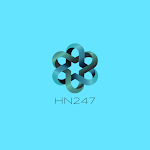Researchers from University of California San Diego have found a way to distinguish among hand gestures that people are making by examining only data from noninvasive brain imaging, without information from the hands themselves. The results are an early step in developing a non-invasive brain-computer interface that may one day allow patients with paralysis, amputated limbs or other physical challenges to use their mind to control a device that assists with everyday tasks.
from Medical Xpress - latest medical and health news stories https://ift.tt/1ocTQYr
Ad Code
Ticker
6/recent/ticker-posts
New study shows noninvasive brain imaging can distinguish among hand gestures
belhaouari bekhedda
May 20, 2023
Most Popular
Tags
Categories
Search This Blog
- March 20265
- February 202652
- January 202660
- December 202562
- November 202571
- October 202580
- September 202568
- August 202588
- July 202576
- June 202591
- May 202585
- April 202590
- March 202589
- February 202548
- January 202571
- December 202486
- November 202470
- October 202474
- September 202472
- August 202472
- July 202474
- June 202472
- May 202474
- April 202464
- March 202479
- February 202475
- January 202492
- December 202389
- November 202379
- October 2023100
- September 2023110
- August 2023118
- July 2023127
- June 2023146
- May 2023151
- April 2023135
- March 2023115
- February 2023119
- January 2023136
- December 2022147
- November 2022148
- October 2022161
- September 2022172
- August 202238



